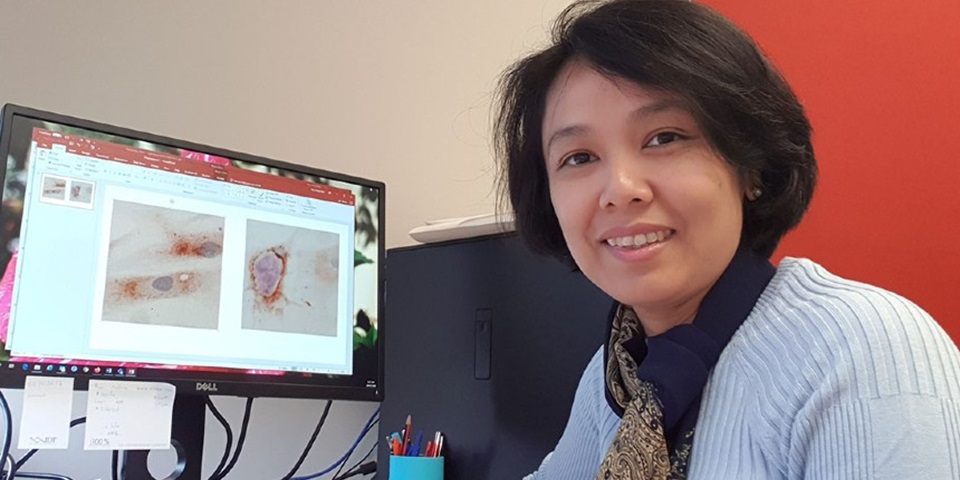News
Molecular research delivers new treatment for Pompe disease

Murdoch researchers continue to pioneer the development of new treatments for rare genetic diseases.
Pompe disease is a rare, inherited disorder that impairs the ability of certain organs and tissues – especially muscle – to function normally.
There are fewer than 70 confirmed cases in Australia today, but the disease remains a focus for Dr May Aung-Htut and her team at the Centre for Molecular Medicine and Innovative Therapeutics (CMMIT).
“This disease is caused by mutations in the GAA gene which makes an enzyme called acid alpha-glucosidase. This enzyme breaks down complex sugar known as glycogen,” explained Dr Aung-Htut.
“In Pompe patients, there is either low level or no enzyme and this leads to an accumulation of glycogen in organs and tissues, mainly in muscles, causing impairment and an inability to perform a normal function.”
On the back of this research, the team have now developed synthetic molecules known as ‘antisense oligomers’ which work to restore the enzyme production and activity in patients with a particular GAA gene mutation found in more than 70 per cent of late-onset Pompe patients.
“This antisense technology is based upon a therapeutic platform established by my mentors Prof. Sue Fletcher and Prof. Steve Wilton for another rare disease called Duchenne muscular dystrophy, that led to two FDA approved drugs.”
Dr Aung-Htut is applying this same type of technology to aid those with Pompe disease.
“The chemistry that we used for the antisense drug has been shown to be safe in patients with Duchenne muscular dystrophy and we are making use of the patients’ cells to make more of this enzyme rather than introducing artificially made enzyme,” said Dr Aung-Htut.
“This should mean fewer side effects such as immune response, making the antisense drug we developed suitable for Pompe patients regardless of their genetic background.”
This form of treatment offers a therapeutic option for Pompe patients who either don’t respond, or have stopped responding, to the current approved enzyme replacement therapy.
“Antisense drugs are gaining momentum to treat a wide variety of inherited and acquired diseases in recent years and here we have another therapeutic application of these compounds,” said Dr Aung-Htut.
Dr Aung-Htut’s passion for progress is clear in her role as a Postdoctoral Research Scientist at CMMIT.
“When I joined this Molecular Therapy Laboratory in 2014, I was given this opportunity to develop an antisense drug for Pompe disease, which I had not heard of before.
“Since then, my mind has been set on developing therapeutics and promoting awareness for rare diseases.”
Learn more about research at the Health Futures Institute.